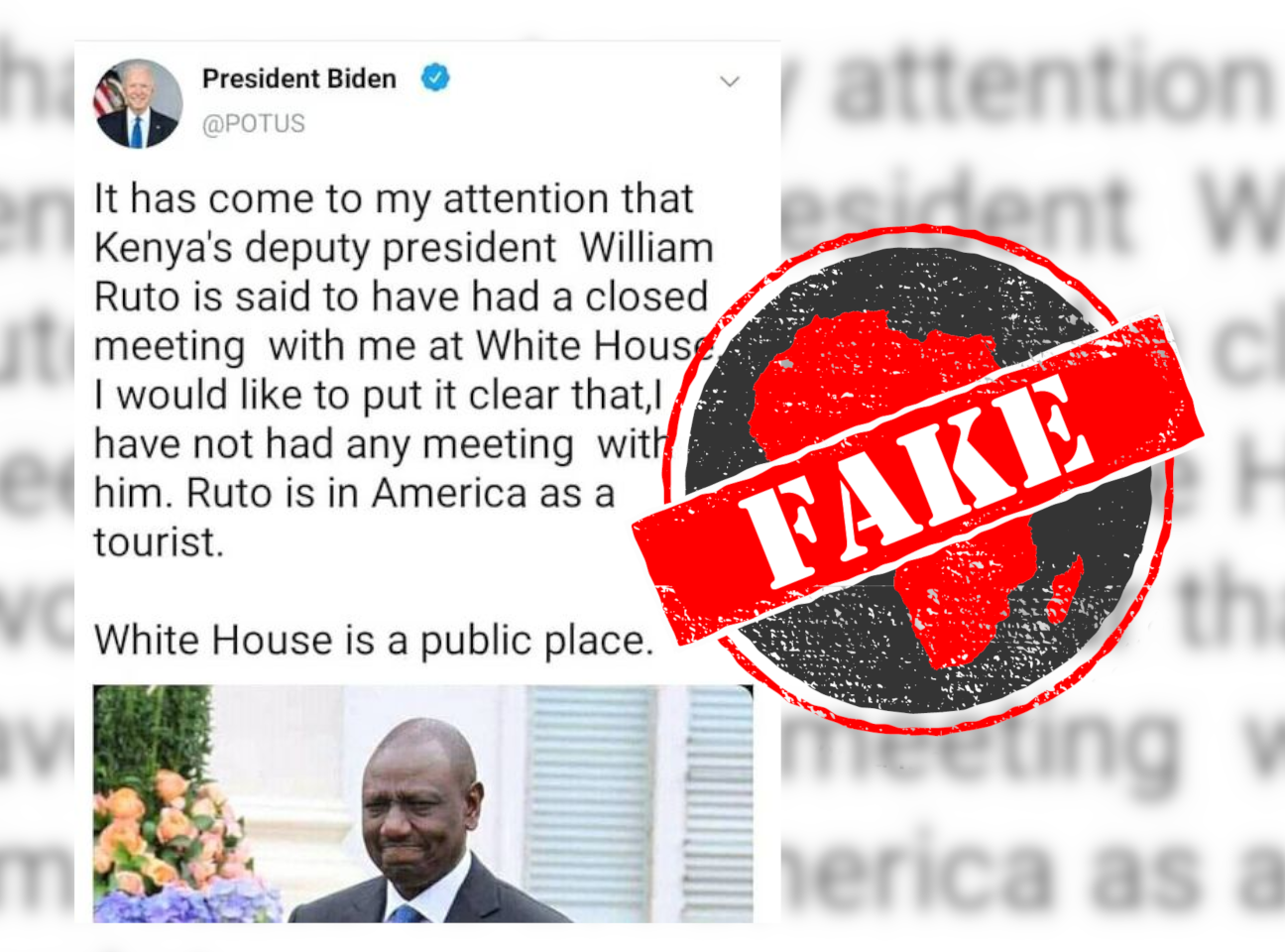In early March 2022 Kenyan media outlets reported that the country’s deputy president William Ruto visited the White House, the official residence and workplace of the US president in Washington DC, to meet senior US government officials.
This drew mixed reactions, with some disputing that he had actually visited the White House.
Hours later, a screenshot of a tweet seemingly by US president Joe Biden started circulating on Facebook.
It reads: “It has come to my attention that Kenya's deputy president William Ruto is said to have had a closed meeting with me at White House. I would like to put it clear that I have not had any meeting with him. Ruto is in America as a tourist. Whitehouse is a public place.”
The quote was also circulated on a graphic with the branding and logo of Kenyans.co.ke, a local news site.
But are the quote and the screenshot authentic? We checked.

Tweet can’t be found on Biden’s verified account
Africa Check searched for the tweet on Twitter and checked all tweets by the verified President Biden Twitter account over the time of Ruto’s visit, and came out empty.
And the tweet was not reported as genuine by any local or international media outlet.
Ruto did not say he would be meeting Biden. And at no point during his visit to the US did his communication team report such a meeting.
On 8 March Kenyans.co.ke posted the graphic with the quote on Facebook, stamped “FAKE”.
“This post did not emanate from our media house,” the news site wrote.
“It does not conform to the in-house branding rules and did not go through the multiple approval checks set in place to prevent misreporting. We, therefore, flag it as FAKE. For official communication from kenyans.co.ke, always visit the official website and verified social media page."
Republish our content for free
For publishers: what to do if your post is rated false
A fact-checker has rated your Facebook or Instagram post as “false”, “altered”, “partly false” or “missing context”. This could have serious consequences. What do you do?
Click on our guide for the steps you should follow.
Publishers guideAfrica Check teams up with Facebook
Africa Check is a partner in Meta's third-party fact-checking programme to help stop the spread of false information on social media.
The content we rate as “false” will be downgraded on Facebook and Instagram. This means fewer people will see it.
You can also help identify false information on Facebook. This guide explains how.


Add new comment